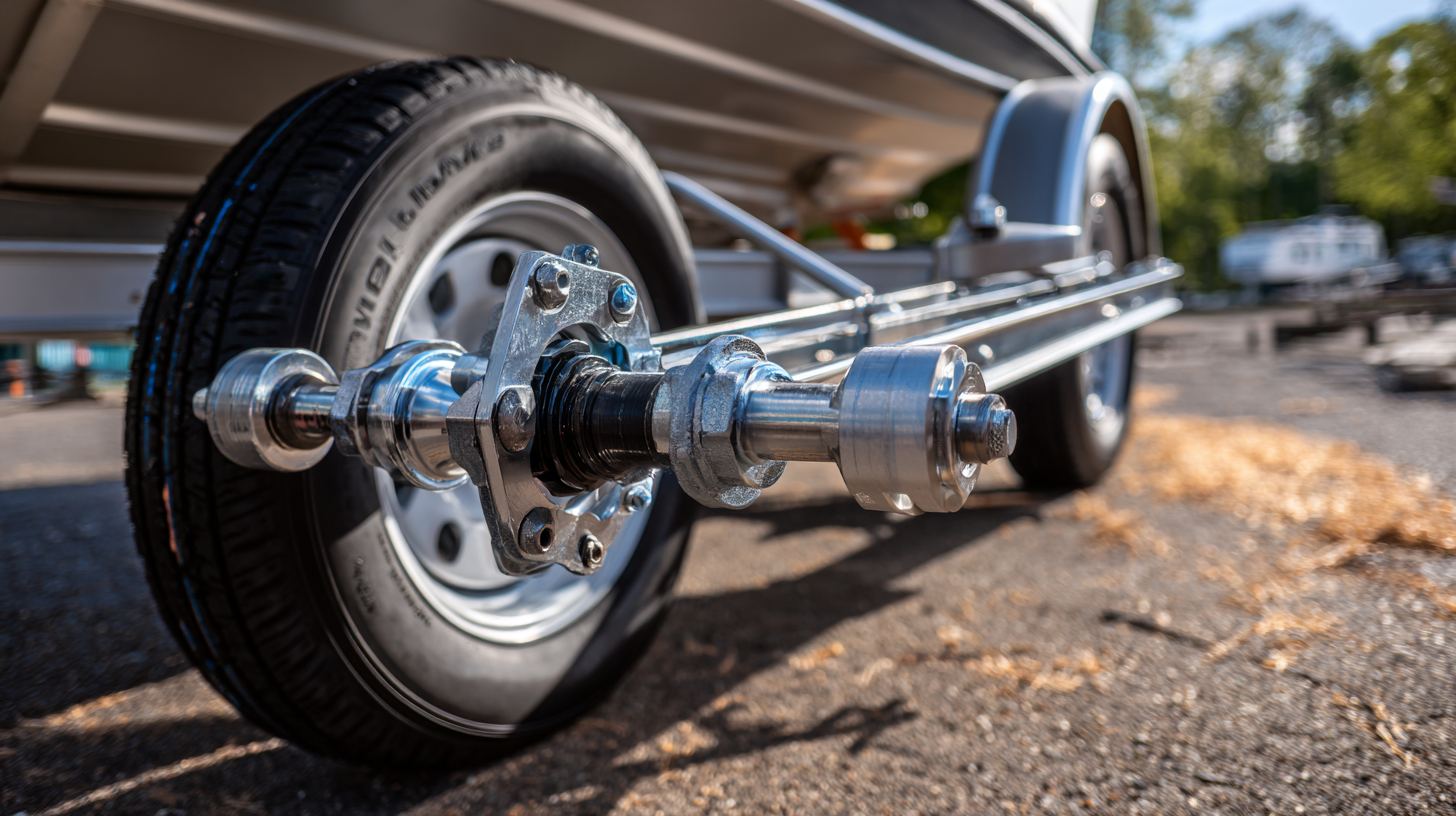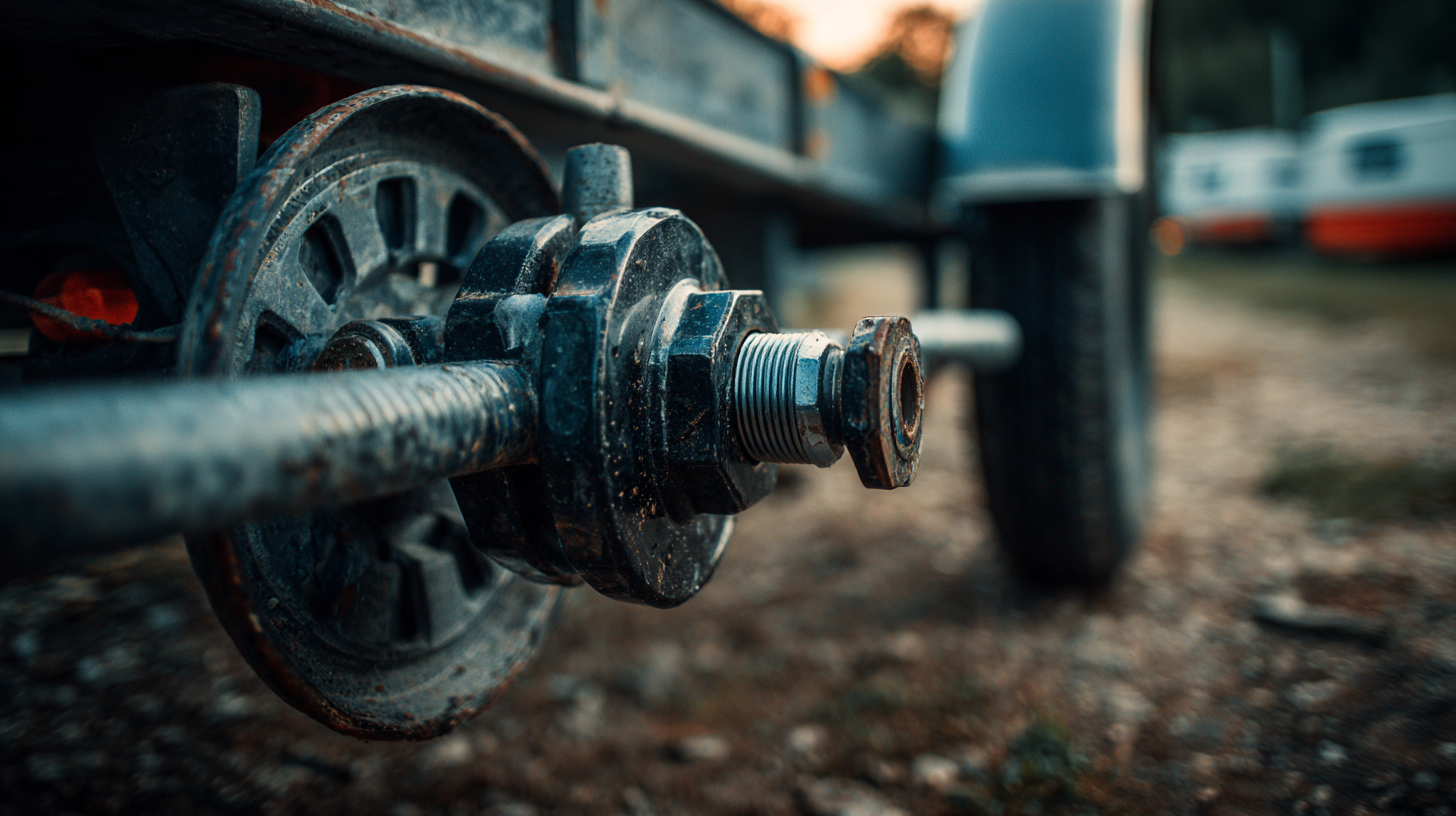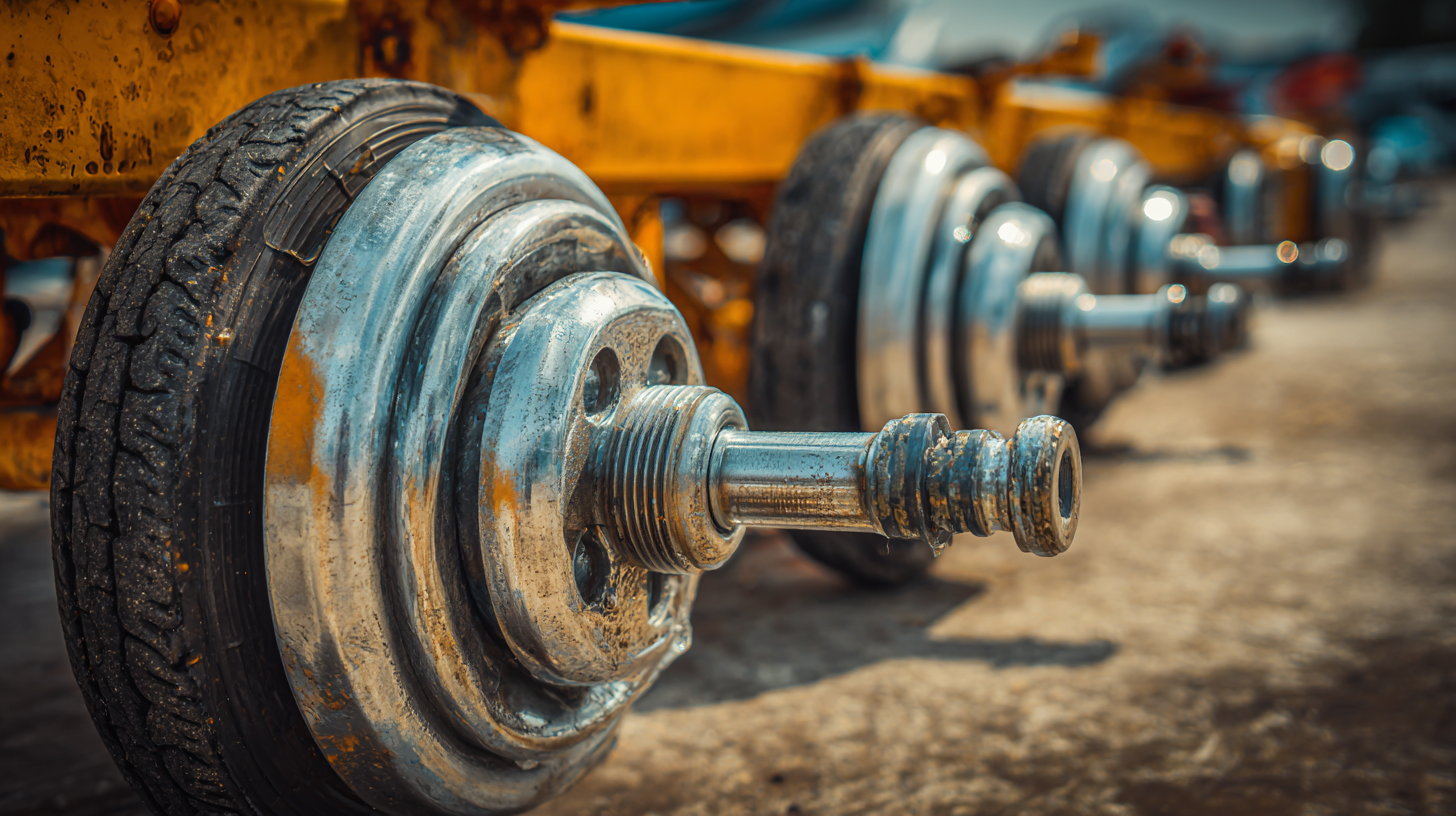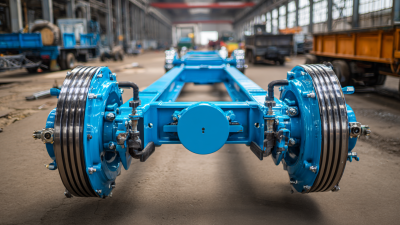7 Best Tips for Choosing the Right Boat Trailer Axle
When it comes to boating, one of the most critical yet often overlooked components is the boat trailer axle. According to a report by the National Marine Manufacturers Association, over 87% of boat owners rely on a trailer for transporting their vessels, highlighting the significance of selecting the right axle. A suitable boat trailer axle not only ensures safe and efficient towing but also enhances the overall performance of your trailer. With varied options in load capacities, materials, and types, choosing the right axle can be daunting. In fact, improper axle selection may lead to premature wear and tear or even accidents on the road. This blog will provide you with the seven best tips for selecting the ideal boat trailer axle to ensure that your towing experience is smooth and hassle-free.

Understanding Different Types of Boat Trailer Axles and Their Functions
When selecting the right boat trailer axle, it is essential to understand the various types available and their specific functions. Boat trailer axles generally fall into two main categories: straight axles and drop axles. Straight axles are ideal for traditional boat trailers with a straightforward design and offer a reliable solution for towing boats of various sizes. They tend to be less expensive and simpler to maintain. On the other hand, drop axles are advantageous if your boat trailer needs to maintain a lower profile for easier launching and loading.
Another important aspect to consider is the weight capacity of the axle. Axles come with different weight ratings that correspond to the weight of the boat and trailer combined. Ensuring that the axle can adequately support your load is crucial for safe towing. Additionally, it's vital to take into account the material of the axle. For instance, galvanized or aluminum axles are more resistant to corrosion, which is particularly advantageous for boat trailers that are frequently exposed to water. By understanding these aspects, you can make an informed decision that ensures a smooth and safe towing experience for your boating adventures.
7 Best Tips for Choosing the Right Boat Trailer Axle
This chart displays the recommended usage percentages for different types of boat trailer axles. Understanding the right axle type for your trailer is crucial for safety and performance while towing your boat.
Factors to Consider When Assessing Load Capacity for Your Boat Trailer
When choosing the right boat trailer axle, assessing load capacity is a critical factor to ensure safety and performance during transport. One must first consider the total weight of the boat and any additional gear that will be carried. This includes not only the boat's weight but also accessories such as fuel, equipment, and personal belongings. To determine the appropriate axle capacity, it's essential to add these weights together and factor in the trailer's weight itself.
Furthermore, it's important to understand the specifications and limitations of your towing vehicle. Each vehicle comes with a maximum towing capacity, which dictates how much weight it can safely pull. This interplay between the trailer axle's load capacity and the towing vehicle’s specifications will help in making an informed decision. Ensuring that both the trailer and vehicle capacities align will enhance safety and optimize the overall towing experience, preventing potential mishaps on the road.

The Importance of Axle Material: Which is Best for Durability?
When selecting a boat trailer axle, the material of the axle plays a critical role in determining its durability and longevity. Common materials include steel, aluminum, and galvanized options, each offering distinct advantages. According to the National Marine Manufacturers Association (NMMA), trailers made with high-quality galvanized steel are ideal for marine environments, resisting corrosion and extending service life, especially in saltwater conditions. On the other hand, aluminum axles are favored for their lightweight nature, providing better fuel efficiency and easier handling, which can be crucial for smaller vessels.
When choosing the right axle material, consider the following tips: first, evaluate your typical boating environment—if you frequently launch in saltwater, prioritize galvanized steel for its corrosion resistance. Second, think about the weight capacity of your trailer. For heavier loads, steel axles are often preferred due to their strength, as they typically have higher load ratings compared to aluminum counterparts. Lastly, always check for industry certifications when selecting axles; the American Boat and Yacht Council (ABYC) lists specific guidelines to ensure safety and reliability in your boating adventures.
7 Best Tips for Choosing the Right Boat Trailer Axle - The Importance of Axle Material: Which is Best for Durability?
| Axle Material | Durability Rating | Weight Capacity (lbs) | Corrosion Resistance | Cost ($) |
|---|---|---|---|---|
| Steel | Moderate | 5000 | Low | 200 |
| Aluminum | High | 3500 | High | 400 |
| Galvanized Steel | Very High | 6000 | Moderate | 300 |
| Composite | High | 2500 | Very High | 500 |
| Aluminum Alloy | High | 4000 | Very High | 600 |
How to Choose the Right Axle Size for Your Specific Boat Trailer Needs
When selecting the right axle size for your boat trailer, it's essential to consider the specific needs of your vessel. The axle plays a crucial role in ensuring safe and efficient transportation, so understanding the weight and dimensions of your boat is critical. Ideally, you want an axle that can accommodate the weight of your boat plus any additional gear without compromising stability. It's also important to factor in the type of terrain you'll be navigating; for example, if you're frequently towing on rugged roads, opting for a heavier-duty axle could be beneficial.
In today's rapidly evolving maritime landscape, where electric and dual-fuel vessels are becoming more common, choosing the correct axle size is more important than ever. With advancements in technology, such as those seen in electric ships, weight distribution and towing capabilities must be optimized to ensure safety and performance. As our industry moves toward more sustainable options, efficiency in every component of boat operation, including the trailer axle, contributes to the broader goal of reducing emissions and enhancing overall operational performance.
The Role of Suspension Systems in Enhancing Trailer Performance and Safety
When selecting the right boat trailer axle, understanding the critical role of suspension systems is essential for enhancing overall trailer performance and safety. The trailer suspension system market is expected to see significant growth, driven by the rising demand for more efficient and reliable transportation solutions. Advanced suspension systems play a key role in ensuring the stability of trailers, especially under heavy loads. They enhance the handling of the trailer, making it easier to tow, which is crucial for optimizing the towing experience.

When choosing the right boat trailer axle, here are some tips to consider: First, ensure that the axle's weight capacity matches your boat's weight to avoid overloading. A well-chosen suspension system can significantly lower the total cost of ownership by improving reliability and reducing maintenance costs. Additionally, look for suspension options that enhance shock absorption; this will protect your boat during transit and reduce wear and tear on both the trailer and the vehicle towing it.
Moreover, consider the type of terrain you will be navigating. Different suspension designs, such as leaf spring or independent suspensions, provide varying levels of comfort and performance. These factors are vital not just for safety but also for ensuring your trailer can withstand the rigors of your adventures, ultimately leading to a more enjoyable experience on the water.
Related Posts
-

Understanding Global Production Standards: What Defines the Best Trailer Axles?
-

2025 Tech Innovations in Trailer Axles: Essential Strategies for Staying Ahead in the Industry
-

Ultimate Guide to Choosing the Best Aluminum Boat Trailer for Global Buyers
-

Exceptional Boat Trailer Repair Solutions from a Leading Chinese Manufacturer for Global Markets
-

The Future of Enclosed Trailers Embracing Innovative Designs and Sustainable Practices
-

Trailer Kit Showdown: An In-Depth Comparison of Top Brands and Their Performance Metrics
